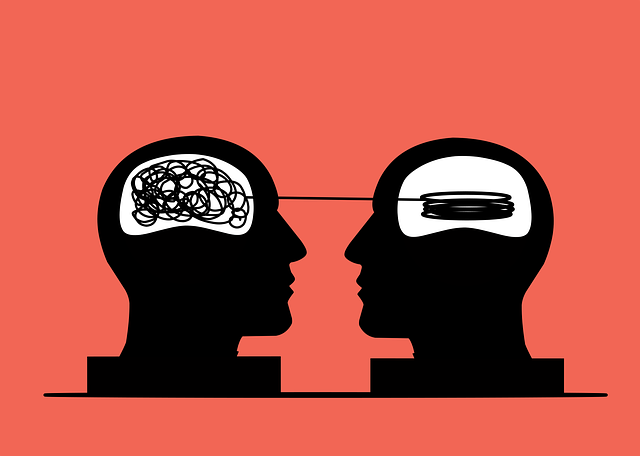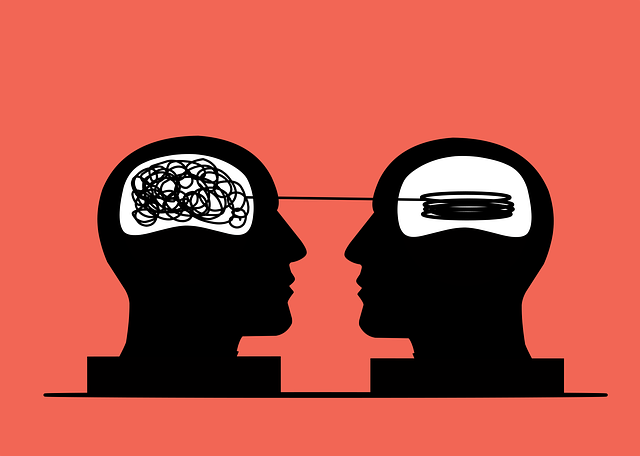Mental health professionals face significant risks in treating complex issues like addiction and trauma, emphasizing burnout prevention through resilience building. They play a vital role in addressing gambling disorders, which have profound effects on well-being. Effective therapy requires tailored strategies, risk assessment, and a safe environment. Structured sessions, cultural competency training, and public awareness campaigns empower professionals to assist diverse populations, reduce stigma, and foster positive mental health outcomes, particularly in gambling-related cases.
Mental health professionals often encounter complex client scenarios, including those involving gambling disorders. This article delves into the crucial aspect of risk assessment, exploring the unique challenges presented by gambling issues in mental health practice. We examine understanding risks, their impact on client well-being, and identifying vulnerable individuals. Effective strategies for comprehensive risk assessment are discussed, along with methods to mitigate risks and promote safe therapy for gambling-related concerns.
- Understanding the Risks in Mental Health Practice
- The Impact of Gambling Disorders on Client Mental Health
- Identifying Vulnerable Populations and Potential Triggers
- Implementing Comprehensive Risk Assessment Strategies
- Mitigating Risks and Promoting Safe Therapy for Gambling Issues
Understanding the Risks in Mental Health Practice

Mental health professionals often find themselves navigating a complex landscape of risks inherent in their practice. From therapy for gambling addiction to addressing deep-seated depression and trauma, these professionals are tasked with helping others while managing their own potential vulnerabilities. Burnout prevention is a critical aspect of this equation, as constant exposure to intense emotional scenarios can lead to professional fatigue if not adequately addressed.
Building resilience is another key strategy in mitigating risks within mental health practice. By fostering strong personal coping mechanisms and a supportive work environment, professionals can enhance their ability to handle challenging situations. This proactive approach not only benefits the individual practitioner but also ensures they are better equipped to provide effective treatment, such as strategies for depression prevention, among their clients.
The Impact of Gambling Disorders on Client Mental Health

Gambling disorders can have severe consequences on an individual’s mental health and well-being. For clients struggling with addiction, the impact extends beyond financial loss or personal relationships; it deeply affects their psychological state. Therapy for Gambling disorders is a specialized field, focusing on addressing the root causes of excessive gambling behaviors while also helping individuals develop healthy coping mechanisms to manage stress and promote positive thinking.
Risk assessment is an integral part of this process, as mental health professionals must identify factors that contribute to the development or exacerbation of these disorders. By understanding the unique challenges faced by their clients, therapists can tailor interventions effectively. This includes implementing strategies for stress management, which is crucial in mitigating the potential negative impact on client mental health and fostering a more supportive therapy environment.
Identifying Vulnerable Populations and Potential Triggers

Mental health professionals often encounter individuals from diverse backgrounds, each with unique experiences that can shape their vulnerability to certain issues. Identifying these populations and understanding potential triggers is a critical step in risk assessment. For instance, those struggling with gambling addiction may require specialized therapy, as financial stress and impulsivity are common triggers. This vulnerable group often faces societal stigma, which can deter them from seeking help, emphasizing the need for professionals to be attuned to such issues.
Public awareness campaigns focused on mental health can play a pivotal role in reaching these populations. By educating folks about recognizing gambling-related issues and promoting positive thinking, stress management techniques, and early intervention, professionals can facilitate more effective support. These initiatives contribute to a broader understanding of mental health, empowering both individuals and therapists to navigate complex cases with empathy and expertise.
Implementing Comprehensive Risk Assessment Strategies

Implementing Comprehensive Risk Assessment Strategies is an integral part of ensuring effective therapy for gambling addiction and other mental health issues. Mental health professionals must adopt a multi-faceted approach to identify potential risks early on. This involves integrating various assessment tools, such as structured interviews, psychometric tests, and clinical observations, to gather a holistic view of the client’s psychological landscape. By employing these strategies, therapists can uncover underlying factors contributing to gambling behaviors or mental health crises.
Moreover, fostering competent healthcare provider cultural awareness through ongoing training is essential in navigating complex cases. Cultural competency training equips professionals with the skills to address unique challenges faced by diverse clientele. It promotes understanding of subtle nuances and potential conflicts that might arise due to differences in values, beliefs, or communication styles. Additionally, this training can enhance self-esteem improvement efforts, as therapists become more adept at creating inclusive environments that validate clients’ experiences, fostering trust and encouraging open disclosure.
Mitigating Risks and Promoting Safe Therapy for Gambling Issues

Mental health professionals often encounter clients grappling with gambling issues, which can pose significant risks to both the individual and their therapeutic journey. Mitigating these risks requires a nuanced approach that goes beyond mere intervention; it involves fostering an environment conducive to safe therapy for gambling-related concerns. By integrating mind over matter principles, professionals can empower clients to develop inner strength and resilience. This proactive strategy not only helps individuals manage their gambling behaviors but also supports their overall mental well-being.
Through structured therapy sessions, professionals can guide clients in understanding the underlying causes of their gambling addiction, promoting healthier coping mechanisms. Additionally, encouraging open dialogue about depression prevention allows for early intervention, addressing potential co-morbidities. By combining evidence-based practices with compassionate support, mental health practitioners can effectively navigate this complex issue, ensuring a safe and transformative therapeutic experience tailored to each client’s unique needs.
Mental health professionals play a vital role in identifying and mitigating risks associated with gambling disorders, which can significantly impact client well-being. By understanding the unique challenges within their practice, such as high-risk populations and potential triggers, therapists can implement robust risk assessment strategies. This process ensures a comprehensive approach to managing gambling-related issues, ultimately providing safer and more effective therapy. Through continuous evaluation and adaptation, professionals can enhance their practices, better support clients, and contribute to positive outcomes in the field of mental health care, specifically regarding therapy for gambling.












